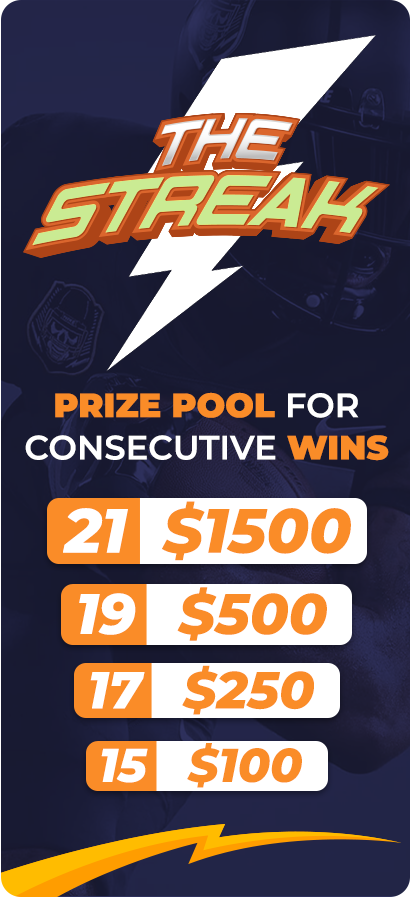Can You Make a Living off of Sports Betting & Betting on Sports

Can you really earn enough income solely from betting on sports events to quit your regular job? With the right approach, knowledge, bankroll, and discipline, some professional punters prove it's possible to make a full-time living from sports wagering. But it takes lots of hard work and isn't easy.
In this comprehensive guide, learn about realistic strategies bettors use, skills required, expected income, viability long-term, and if sports betting can realistically replace a regular salary. With insight into key factors like bankroll management, betting math, and finding value, discover if a career as a professional sports trader lives up to the promise.

$250 in Free Bets

$750 Bonus - Tons of Betting Options

150% Bonus - Reduced Juice
How Can You Make Money Betting on Sports?
Before evaluating if full-time sports betting profits can support daily life needs, it’s important to understand how bookmakers and betting exchanges work.
Successful sports punters don’t just correctly predict winners. Instead, they identify and exploit opportunities where the posted odds differ from the true probabilities. This discrepancy between the implied probability of odds and the actual probability is called "value."
To turn a long-term profit, you need to consistently find and bet on value odds.
Sportsbooks and sports betting sites sometimes overestimate or underestimate the chances of certain outcomes. Savvy bettors capitalize on these mismatches.
Of course, no one wins every sports wager. Even the best handicappers show winning percentages between 52.4% and 59%. But by repeatedly betting on value over the long run, you gain an advantage to overcome the bookie’s built-in margin.
With big enough volume across a diversity of bookmakers, betting exchanges, and sports, positive expected value translates into solid returns.
Matched Betting and Arbitrage Bet: Safe Alternatives
Most discussions around “making a living” from sports betting refer specifically to traditional fixed-odds punting. However, matched betting and arbitrage trading present safer, easier alternatives:
- Matched Betting: Take advantage of bookmaker bonuses and promotions to secure a risk-free profit.
- Arbitrage: exploit price differences between bookies to place bets that guarantee profit.
These methods generate more consistent returns without predicting matching outcomes. Matched betting and arbing alone likely won’t deliver full income replacement. But they provide safer revenue streams to supplement sports betting.
Skills Needed To Make A Living Sports Betting
Besides access to betting capital, aspiring full-time punters need to develop key skills and disciplines:
- Advanced handicapping: analyze teams, athletes, and contests to gain betting edges.
- Line shopping: identify the best odds and spread prices across many sportsbooks.
- Bet sizing and staking: stake amounts based on edge sizes and value
- Bankroll management: only risk small fractions of total capital per bet.
- Record keeping: track every bet, outcome, and profit or loss.
- Math and modeling: Translate research into expected values and probabilities
- Discipline: Remain detached and stick to proven processes.
Tipsters sell pick-up packages and alert services. But at best, these deliver short-term profits. Lasting success requires doing the work to develop your own betting system.
Profit Accumulator & Realistic Expectations From Sports Trading
Even professional punters sitting at computers all day won’t realistically earn millions. But full-timers can achieve decent average incomes.
* £35,000-£100,000 ($45,000-$130,000) per year is the typical range for successful UK or European sports bettors and traders.
* $50,000-$70,000 per year: estimates for a top expert US handicapper using multiple outsourced tools
* $250 per hour: approximate earnings from providing betting advice or selling picks or tips if you gain a following
These may not match software engineer or finance salaries. But it beats the minimum wage and median household incomes.
A decent sports betting income requires huge bet volume across thousands of events annually. Having six figures at risk helps maximize opportunities. And most established pros admit they don't turn profits overnight. Still, perseverance through early struggles can pay off.
Is it Possible to Make a Living Off Of Sports Betting Long-Term?
A common question is: can this replace regular work beyond just one good year? Or will losing runs inevitably catch everyone over the course of months and years?
First, the bad news: failure and burnout likelihood appear high. Estimates suggest:
- 95% of sports bettors lose money over 12 months across regulated markets.
- Of those earning short-term profits, 70% fail to sustain them long-term.
- Many that achieve early success still eventually go bust after some years.
Why the bleak outlook? Few have the skills, resources, and temperament for the job. Basic errors creep in, like poor bankroll management, a lack of discipline to follow a process, unreasonable expectations, underestimating variance, and the risk of ruin.
Now the good: with dedication to continually improving, adapting, and sticking to fundamentals, sustainable lifetime profits seem feasible.
It’s mathematically possible if you tighten weaknesses, manage swings, and approach it as running a business. Tales exist of professional gamblers staying successful for 40+ years. But no shortcuts to joining that elite tier exist.
Tips and Common Pitfalls In Sports Gambling For Beginners
If you remain determined to pursue betting as a career, beware of rookie mistakes that prematurely cut efforts short.
- Have enough starting capital. It’s called gambling for a reason. Variance can eat too far into small bankrolls, so save 50–100 times the typical stake.
- Specialize in a sport—master one league completely before adding breadth. Betting in fringe markets heightens risk.
- Don’t chase losses. Going on tilt and trying to immediately offset negative swings is reckless. Stick rigidly to stakes proportional to the regular edge.
- Review and improve. Analyze past performance constantly. Identify strengths, errors, and opportunities.
- Have a Funded Account: Look into sites that offer funded accounts to beginners, like STS and Betfair.
- Don't rely on hot tipsters. Short-term success doesn't guarantee long-term profits. Focus on your own models.
- Avoid "get rich quick schemes." Sustainable earnings from sports betting require hard work and perseverance.
Final Thoughts: Should You Pursue Betting Professionally?
Can some make a living from sports betting? Yes, but stable profits go to disciplined, realistic bettors who put in tremendous effort. Treat it like a business, not just a hobby. View losses as tuition, and always be honing your craft. With the right skills, knowledge, mentality, and expectations going in, certain people may earn suitable incomes if they are committed to the long haul and ready to grind.
Key Things To Remember
- Finding value odds and exploiting betting market inefficiencies is key to turning a long-term profit.
- Matched betting and arbitrage provide alternative ways to secure income without predicting match outcomes.
- Developing expertise across handicapping, bankroll management, and math represents the bare minimum needed.
- Expect long hours and years of dedication. Most still fail to replace a regular salary through sports betting.
- Specialize, continually review performance, adapt processes, and manage volatility to give yourself the best chance of sustainable success.
FAQ's
Can you make a career out of sports betting?
For sure! Some folks have turned their love for sports betting into a full-on career by being pros at it, using solid strategies, and handling risks like champs.
Is it possible to be a professional sports gambler?
Absolutely! You can go pro in sports gambling by treating it like a serious job, keeping risks in check, and using proven methods to bring in the wins.
Chat 
Rules
The goal of chat is to talk sports and sports betting! Help each other by sharing picks and having a good time!
Below will not be tolerated
You can chat about most things to a certain extent. Exception is absolutely NO talking about Religion or Politics.
- There will be NO talking about others or their families
- There will be NO name calling.
- There will be NO rambling on or repeating the same thing over and over.
- There will be NO racist or sexist comments.
- There will be NO posting of other websites.
Basically treat others the way you would like to be treated.
Break the rules

- 1st warning a 24 hour ban
- 2nd warning 7 day ban
- 3rd warning a lifetime ban




